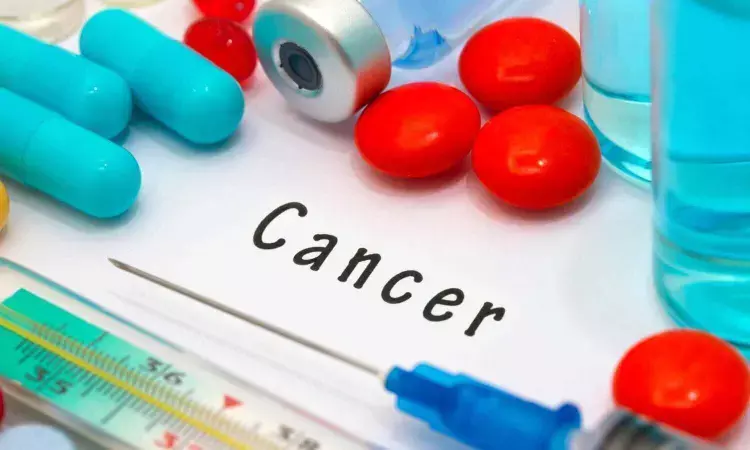- Home
- Medical news & Guidelines
- Anesthesiology
- Cardiology and CTVS
- Critical Care
- Dentistry
- Dermatology
- Diabetes and Endocrinology
- ENT
- Gastroenterology
- Medicine
- Nephrology
- Neurology
- Obstretics-Gynaecology
- Oncology
- Ophthalmology
- Orthopaedics
- Pediatrics-Neonatology
- Psychiatry
- Pulmonology
- Radiology
- Surgery
- Urology
- Laboratory Medicine
- Diet
- Nursing
- Paramedical
- Physiotherapy
- Health news
- Fact Check
- Bone Health Fact Check
- Brain Health Fact Check
- Cancer Related Fact Check
- Child Care Fact Check
- Dental and oral health fact check
- Diabetes and metabolic health fact check
- Diet and Nutrition Fact Check
- Eye and ENT Care Fact Check
- Fitness fact check
- Gut health fact check
- Heart health fact check
- Kidney health fact check
- Medical education fact check
- Men's health fact check
- Respiratory fact check
- Skin and hair care fact check
- Vaccine and Immunization fact check
- Women's health fact check
- AYUSH
- State News
- Andaman and Nicobar Islands
- Andhra Pradesh
- Arunachal Pradesh
- Assam
- Bihar
- Chandigarh
- Chattisgarh
- Dadra and Nagar Haveli
- Daman and Diu
- Delhi
- Goa
- Gujarat
- Haryana
- Himachal Pradesh
- Jammu & Kashmir
- Jharkhand
- Karnataka
- Kerala
- Ladakh
- Lakshadweep
- Madhya Pradesh
- Maharashtra
- Manipur
- Meghalaya
- Mizoram
- Nagaland
- Odisha
- Puducherry
- Punjab
- Rajasthan
- Sikkim
- Tamil Nadu
- Telangana
- Tripura
- Uttar Pradesh
- Uttrakhand
- West Bengal
- Medical Education
- Industry
How to improve Accessibility issues in cancer care: JAMA

Researchers at the University of Michigan are finding that many patients may be encountering significant barriers to cancer care, even from their first phone call to a clinic.
Patients attempting to access cancer care must go through several different levels of communication, both before their initial appointment with a physician and throughout their treatment.
Making those first calls to learn more about available cancer care services or to schedule an appointment at a clinic is an important step toward beginning their treatment journey.
“Racial and ethnic disparities have been observed in the outpatient visit rates for specialist care, including cancer care. However, we know very little about patients’ experiences at the critical step of attempting to access new clinic appointments for cancer care,” said Debbie Chen, M.D.
Researchers set up simulated patient calls and studied whether each caller was able to access cancer care-that meant whether the caller was provided with a clinic appointment date or scheduling information.
Using standardized scripts, the simulated patients spoke in one of three languages-English, Spanish, or Mandarinand inquired about a new clinic appointment for colon, lung, or thyroid cancer care.
The simulated patients called 479 clinic phone numbers, which were provided by the hospital general information staff at 143 hospitals in 12 states.
Researchers found that access to new patient appointments for cancer care was poor for all simulated patient callers in the study – only 41.5% of the 985 total calls were successful.
Even the simulated English-speaking patient caller encountered challenges and were successful in accessing cancer care in only 61% of calls.
About one-quarter of the 985 calls ended early due to workflow barriers, which included calls going to a voicemail that did not provide adequate information, or being on hold for over half an hour.
In addition, researchers found that access to new patient appointments for cancer care was worse for non-English speaking patients.
The simulated Spanish- and Mandarin- speaking patient callers accessed cancer care in only 36% and 19% of the calls, respectively, far less than their English-speaking counterpart.
Nearly 50% of the calls made in SJAMApanish or Mandarin ended due to language barriers when simulated patient callers were hung up on in response to asking “Speak Spanish?” or “Speak Chinese?”, or disconnected when the automated message did not provide language-specific instructions but required input to continue.
Even after getting connected to interpreter services, some callers were unable to receive further assistance.
"Our study highlights existing barriers that patients may encounter when attempting to access a new clinic appointment for cancer care and illustrates how this access point functions as a gatekeeper to cancer care services, with many patient populations, including patients with limited English proficiency, unable to even get in the door to see a physician for their cancer care” Chen said.
“Thus, interventions focused on mitigating these barriers are necessary to increase access to cancer care for all patients.”
Reference:
Chen DW, Banerjee M, Gay B, et al. Access to New Clinic Appointments for Patients With Cancer. JAMA Netw Open. 2024;7(6):e2415587. doi:10.1001/jamanetworkopen.2024.15587.
Dr Kamal Kant Kohli-MBBS, DTCD- a chest specialist with more than 30 years of practice and a flair for writing clinical articles, Dr Kamal Kant Kohli joined Medical Dialogues as a Chief Editor of Medical News. Besides writing articles, as an editor, he proofreads and verifies all the medical content published on Medical Dialogues including those coming from journals, studies,medical conferences,guidelines etc. Email: drkohli@medicaldialogues.in. Contact no. 011-43720751


